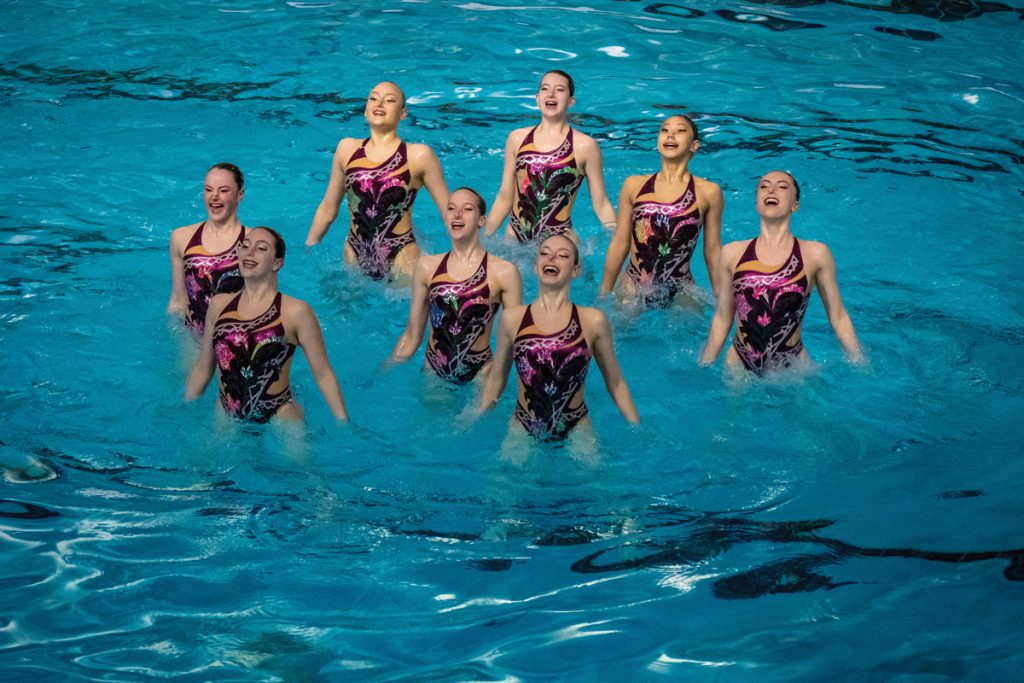
Photo: Canada Games Society
How BC Artistic Swimming created a healthier organizational culture
By Connie Jeske Crane
Several years ago, after making significant changes to its board and hiring Jennifer Keith as executive director, British Columbia Artistic Swimming (BCAS) took a long hard look at its culture. BCAS members were consulted about “the good, the bad and the ugly,” says Keith. The findings were eye-opening.
While there was some good among the bad and ugly, Keith says, “There were incidents of harassment, there was toxicity among members … poor coaching practices, inappropriate behaviour, poor leadership, lack of trust and conflict.”
In response, BCAS partnered with the Canadian Centre for Ethics in Sport and in March 2020 piloted an innovative 18-month project called EVOLVE.
“We sat down and said, ‘We need to do something, we need to change something so that we can survive.’” Today, Keith says BCAS has seen a “very positive” culture shift.
While research indicates that a positive culture can help a sport organization address many pitfalls—and even boost athletic performance—change is tricky. Even the best policies and education modules can’t ensure core values will permeate your organization.
Yet, with its more proactive approach, BCAS offers a great case study—especially as the organization has been strikingly transparent, warts-and-all.
So what worked? We talked to Keith about BCAS, EVOLVE, and how to shift organizational culture. Here are some highlights:
Comprehensive Feedback
Assessment is step one in the EVOLVE process. To uncover the issues, Keith says BCAS “undertook a host of consultations with our members,” everything from town hall meetings to a coaches’ survey, plus anonymous formats for parents, athletes and other stakeholders.
Keith also cites strong participation of “80% of our registered coaches, close to 100% of our athletes swimming in the highest competitive stream, 100% of our board members and at least one member of each club executive.”
A People-centred Approach
Rather than policy-driven, the EVOLVE approach was people-centred. Keith says changing culture is “fundamentally personal.” At BCAS, where problems around conflict and mistrust loomed large, Keith says, “people weren’t really aware of what the issues were necessarily, or more importantly, how they were contributing to them.”
Therefore, besides expected elements such as Safe Sport Training and ethical literacy, Keith says EVOLVE enlisted organizational behaviour experts to help members acquire more self-awareness, communication and conflict resolution skills. She talks about one club that previously struggled with disciplinary issues. “This year, they had some additional issues to deal with. And they did a phenomenal job. They followed the policy, checked in with me when they weren’t sure what to do… But they really applied what they learned around managing conflict.”
Coaching was another important focus, says Keith, “…development and building the tool kit for our coaches with new coaching strategies and rebuilding some of the relationships among our coaches that had become tarnished.”
Finally, peer sharing also emerged as an effective way for members to share learning and bond during the project, adds Keith.
The Work Is Ongoing
With culture, Keith acknowledges, “We need to be doing this on an ongoing basis. So there needs to be that ongoing investment from the organization to not just building the resources, but sharing the resources.”
As for sharing outside of BCAS, she says, “I recently presented the project and our findings to all the provincial sport organizations in B.C.,” and notes, “there has been a lot of interest from other sports.”
Originally published in the ADRENALIN Spring 2022 issue.



